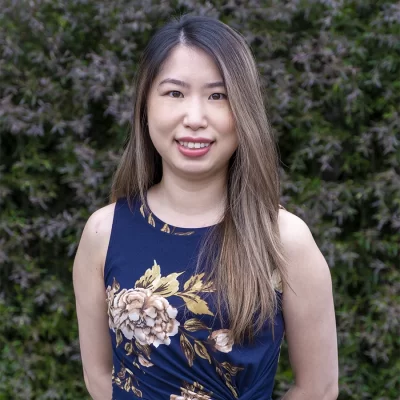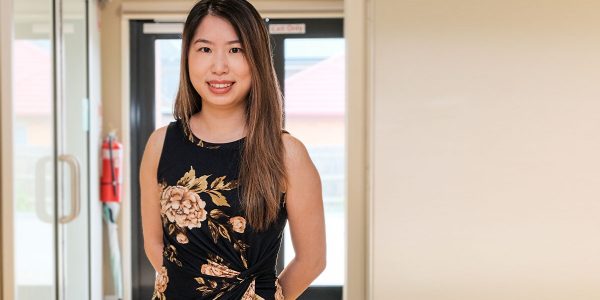Alongside hard work, her dedicated commitment to her GP pathway is to thank for her seamless transition from med student to GP trainee.
“I knew quite early on that I wanted to do GP back in med school. I was quite involved with GPSN – as a first year med student I was on the GPSN UQ executive team, which I continued to stay on for four years culminating in becoming the chair of GPSN UQ in my final year. During that time we got to organise a lot of events with students and promote general practice, so that’s where my interest started.”
“Within a few months of working in the hospital it became quite clear to me that I didn’t really like the hospital system and wanted to get into GP training. After applying for GP training as an intern, I did my next year as a Junior House Officer at the same hospital.”
The broad scope of general practice means you not only have the opportunity to explore different avenues of medicine, but constantly expand your knowledge beyond the regimented learning spaces of university.
“I have a special interest in women’s health as well as skin cancer medicine. Even though I’ve finished my GP exams, I’m still learning, I’m still studying and I’ve signed up for a few courses to help increase my knowledge.
I’m doing an Advanced Skin Cancer Medicine course at the moment, and will be completing an Advanced Workshop of Intrauterine Systems as well.”
“The great thing about general practice is that you can subspecialise in what you’re interested in and you can attract the kind of patients that you are interested in seeing. So once I increase my skills in those aspects, I’ll hopefully be able to focus more on that.”
With the commencement of her GP training coinciding with the beginning of the COVID-19 pandemic, Kah has quickly learned about the virtual side of medicine.
“It’s another extra thing that I’m doing outside of my everyday GP training work that is very rewarding because you feel like you’re giving back to your colleagues.”
“The majority of my training and workshops were on Zoom. There was also the introduction of telehealth as well last year, which is still continuing. With certain cases at the moment, we have to wear PPE, we don’t see patients with coughs and colds and people were having to show a negative COVID test if they wanted to come in.”
Despite the looming spectre of the pandemic, daunting contingency plans and the hollowness of online conferencing, the outlook of GPs and the community is largely encouraging.
“Things have changed a lot, definitely within the last one and a half years. Overall though, the change has been quite positive. Pre-COVID GPs would have to call patients to follow up on urgent results anyway and they weren’t getting paid for it, so at least now, you can call patients and bill them for it. I think most people prefer to call up and talk to the doctor over the phone rather than come face to face if it’s only something simple anyway.”
“No one knows how long COVID is going to be around for, but I think a lot of businesses and organisations have already transitioned towards virtual interactions, so I think it is probably going to stay around for a while.”
According to Kah, having the initiative to take advantage of the flexible hours and dedicating her spare time to others has been incredibly gratifying.
“I started being an RLO about a year ago at the end of my GPT1 training and it’s been really rewarding. My role is to help advocate for the registrars in the EVGPT training program. We have monthly meetings with EVGPT and we bring up any issues that might be circulating around in the cohort.”
“It’s another extra thing that I’m doing outside of my everyday GP training work that is very rewarding because you feel like you’re giving back to your colleagues.”
And her number one piece of advice to students on a similar trajectory?
“Keep your options open and try to get as much experience as you can in different specialities when you’re a med student doing your hospital rotations, as well as when you’re working as a Junior Medical Officer or Registrar.”
“There is so much breadth in the type of medicine that you see in any kind of hospital term that will be applicable, and you’ll be able to apply that knowledge and skill level into everyday general practice. It’s definitely a good career option for people who like flexibility, who like to be challenged and who can tolerate a degree of uncertainty.”
These articles, from our GPFirst magazine, are aimed at inspiring the next generation of GPs by sharing real stories of working in practice.



